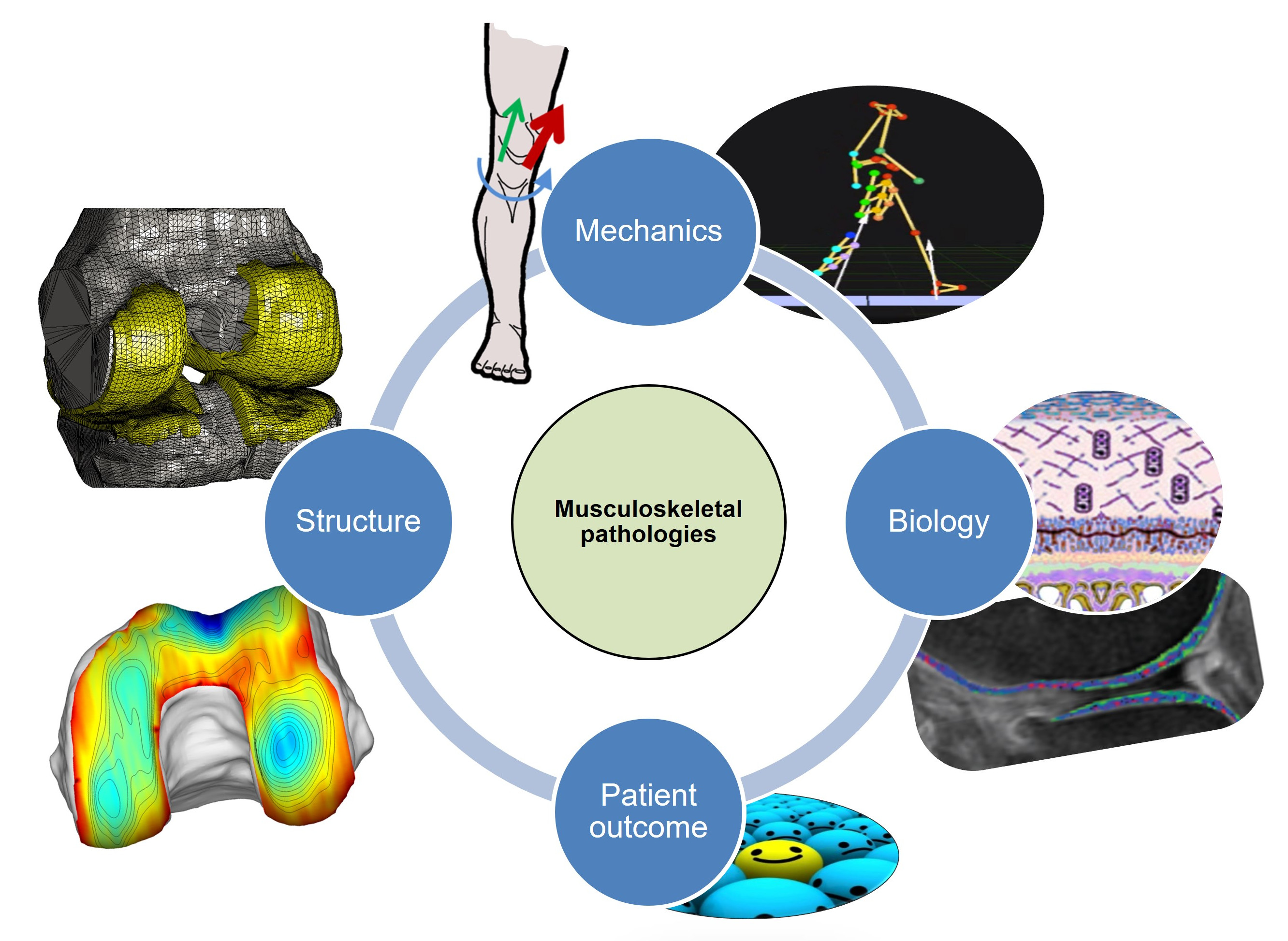Research
The Swiss BioMotion Lab favors an interdisciplinary research combining mechanical, structural, biological, environmental, and psychological data. This approach was selected in response to the complexity of many disorders, particularly musculoskeletal, which affect the human body globally. Consequently, research at the Swiss BioMotion Lab is generally built around a pathology and mixes various technologies, such as gait analysis, biomedical imaging, robotics, or electrochemistry. More than providing an overview, this approach allows to study and model the interactions among different factors of a pathology.
Research at the Swiss BioMotion Lab is also interdisciplinary in the sense that it develops conjointly along engineering and medical scopes. In addition to clinical studies, the lab is highly active in the development of novel diagnosis, monitoring, and rehabilitation tools. The lab is particularly involved in the design of techniques to characterize and modify walking patterns, and methods to analyze bone and cartilage properties using biomedical imaging.
The Swiss BioMotion Lab is fully translational. While some projects could be qualified of purely fundamental or applied research, most of the works connect both. Interestingly, we do this both ways, by carrying fundamental knowledge on to the patients and by guiding fundamental research based on knowledge gained at the patient sides.
The roots of the Swiss BioMotion Lab are in musculoskeletal medicine. Nevertheless, the activities largely exceed this field, thanks to collaborations, for example, on other medical conditions or sport questions.




